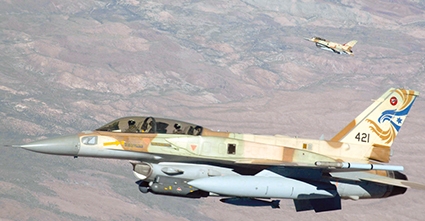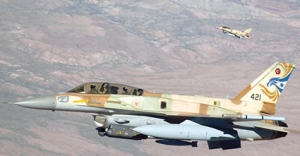Russian Perspective on the Death of IL-20
The Russian press and overall Russian public opinion has been exceptionally negative about Israel over the last couple of weeks following the downing of a Russian military plane near Syria on September 17, which killed 15 Russian troops.
Many Russian analysts agree that though the downing of the plane was allegedly an Israeli mistake, it is clear that there will be no major deterioration in bilateral relations, and that this is not a casus belli to result in Russia going to war against Israel economically or even in some military sense. However, that also does not mean that Russians see the situation in a positive light. They agree, from high-level politicians to analysts and ordinary citizens, that the situation is actually quite bad, and, of course, bilateral relations between the countries will remain undermined.
There are ongoing calls to penalize Israel or even sever diplomatic relations. However, those opinions belong to radical nationalists, since pretty much the entire political class understands that Russia and Israel need each other, as both have strategic interests in Syria.
Some analysts suggest that the situation, in principle, could be corrected by Israel if it agrees to pay compensation for the IL-20, but so far such a desire is not on the horizon.
Following the downing, an interesting thinking appeared among politicians and analysts that the incident could be compared to what happened in the Turkish skies in November 2015 when the Turks shot down a Russian fighter jet. Later on, these comparisons were discarded since, as the Russians claim, the Turkish pilot had the mission to shoot down the Su-24 jet, whereas in this latest case, Israel, most likely, delivered strikes against objects connected with Iran who, at the time of the battle, decided to hide behind a Russian plane.
Others think that where, as a result of the 2015 conflict escalation between Moscow and Ankara, both sides lost more than $40 billion, the consequences of a similar confrontation with Israel could be more destructive for Russia, given Israel’s position in the international political and financial system and its lobbyist power around the globe (especially in the White House).
The wider opinion also goes that if, later, it turns out that the events that led to the incident were part of Israel’s purposeful game and its military deliberately put the Russian plane at risk to spoil Moscow’s relations with Damascus, then this will not be left unanswered.
Russian analysts and many middle-level politicians have suggested that the fact that Russia, for the time being, agreed with Israel’s strikes on certain objects in Syria was perceived by Israelis not as a temporary exception, but as a granted, the result of which was the Israeli F-16 attack, which caused the downing of the IL-20. Israel’s explanation that they hit the “infrastructure facilities of the Syrian army that produced weapons of mass destruction for the terrorist organization Hezbollah” and “these weapons were intended for use against Israel” cannot serve as an excuse.
More radical analysts associated with the Kremlin proffered that Israel does not want strong neighbors and it is doing what it can to weaken them. The war in Syria was beneficial to Israel because the Arabs, who had not forgiven it for either the seizure of Palestinian land or the occupation of East Jerusalem, were engaged in self-destruction. However, thanks to Russia, this war is coming to an end and Israel, if it really wants to preserve the chance for some sort of peace, needs to get used to the fact that it will have to respect the territorial sovereignty of its neighbors. It was even suggested at the level of the State Duma that Israel will have to stop attacking targets in the seaside Syrian province of Lattakia, located more than half a thousand kilometers from the borders of Israel.
Moderate views expressed over the past days include the thinking that the Israeli actions were not carried out deliberately. Most likely, the Israeli military pilots decided to use a Russian aircraft as a shield on the spot and this was, apparently, the initiative of a specific pilot. Many do not believe that Israel could have done it on purpose, as Israel does not need to aggravate relations with Russia. The Russian logic goes that at the very beginning, Israel did not oppose the government in Syria, and then, when the opportunity appeared to displace Assad, Israel began to contact the opposition and even helped it with weapons. However, in the end, Assad won and Israel ended up on the losing side. In such a situation, purposefully increasing tensions with Russia, according to Russian analysts, would be unthinkable geopolitically.
Igor Delanoe, Deputy Head of the Franco-Russian Observo-Analytical Center, a specialist in international politics, believes that the agreement on the coordination of the Russian and Israeli military will remain, since it is beneficial for both Moscow and Tel Aviv. “They have a common understanding that confrontation with each other is unprofitable,” he told RIA Novosti.
Indeed, put in the overall geopolitical context, it is unimaginable that even following the tragic IL-50 incident, Israeli-Russian relations would deteriorate substantially. Tensions will persist, but states understand that they actually need each other. For Russia, alienating Israel around the Syrian battlefield would be an unfortunate development. Moscow is attempting to maintain a dominant position in Syria after having gained important victories. Achieving this grows more difficult as the Syrian battlefield becomes more crowded.
The Russians understand that in view of Israel’s security imperatives, intermittent Israeli intervention is going to take place. They also know that Israel will almost certainly have to respond again, even if the Golan Heights are not directly threatened.
This is a difficult geopolitical situation. The Russians see that an understanding between the two countries might be kept, but such military complications are bound to happen again in the future. Cooperation is essential for Russia and Israel, but separation of their military zones and interests so that both sides remain militarily safe is impossible.
By Emil Avdaliani












